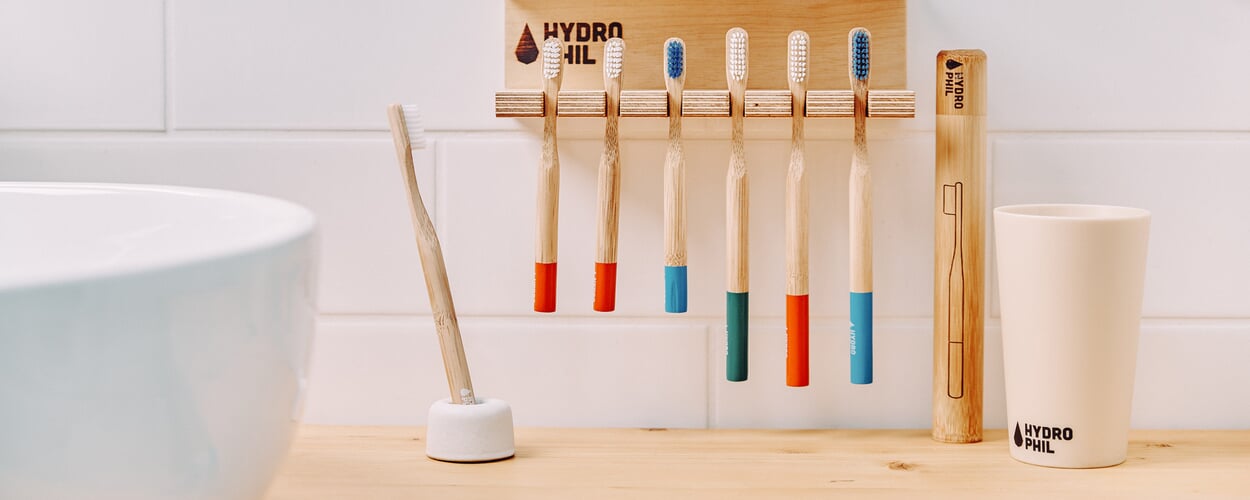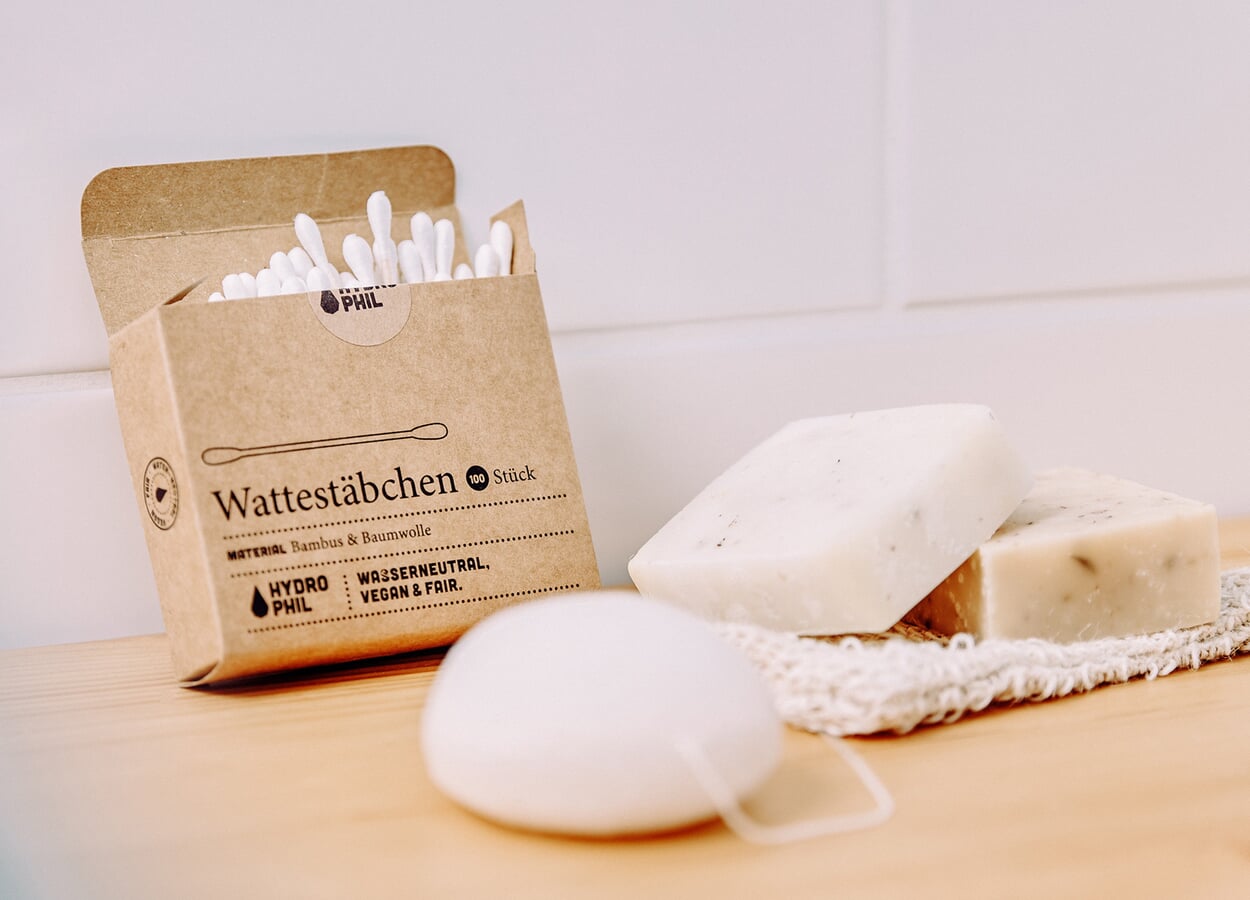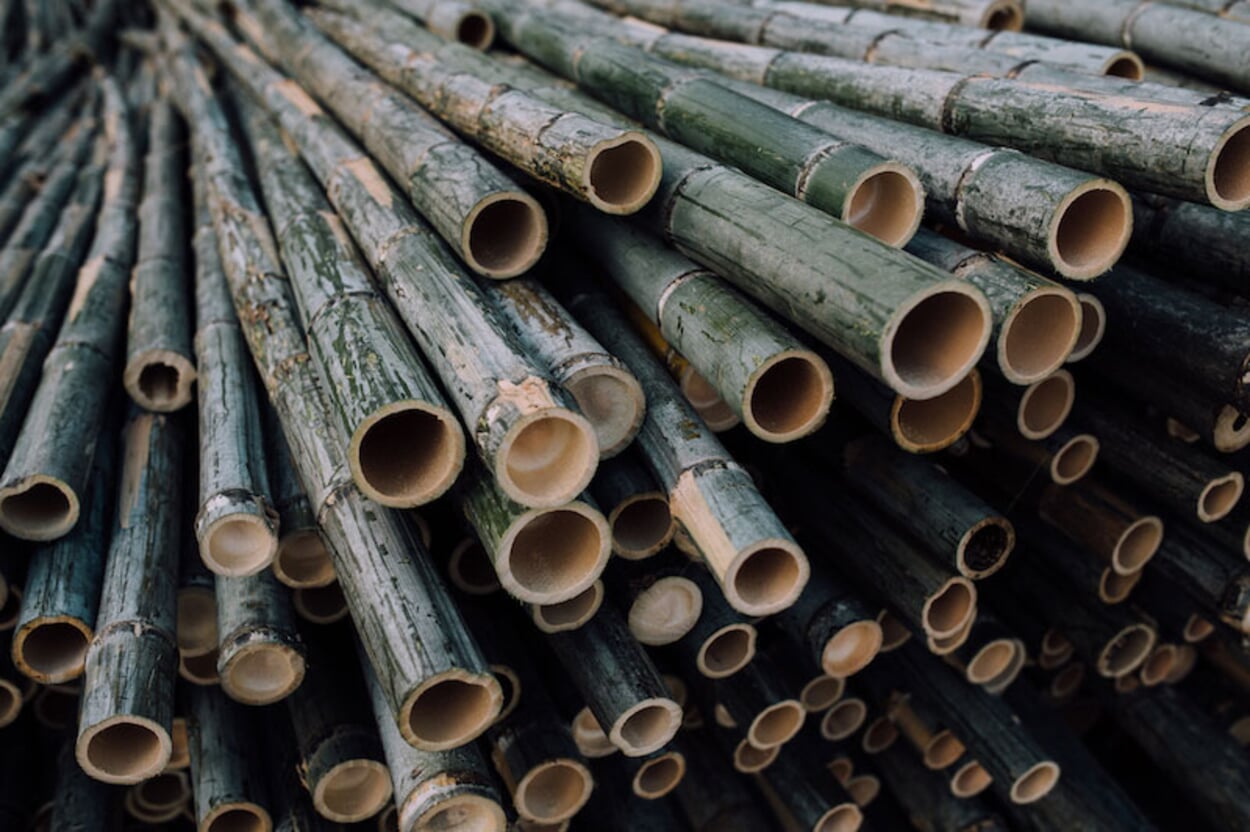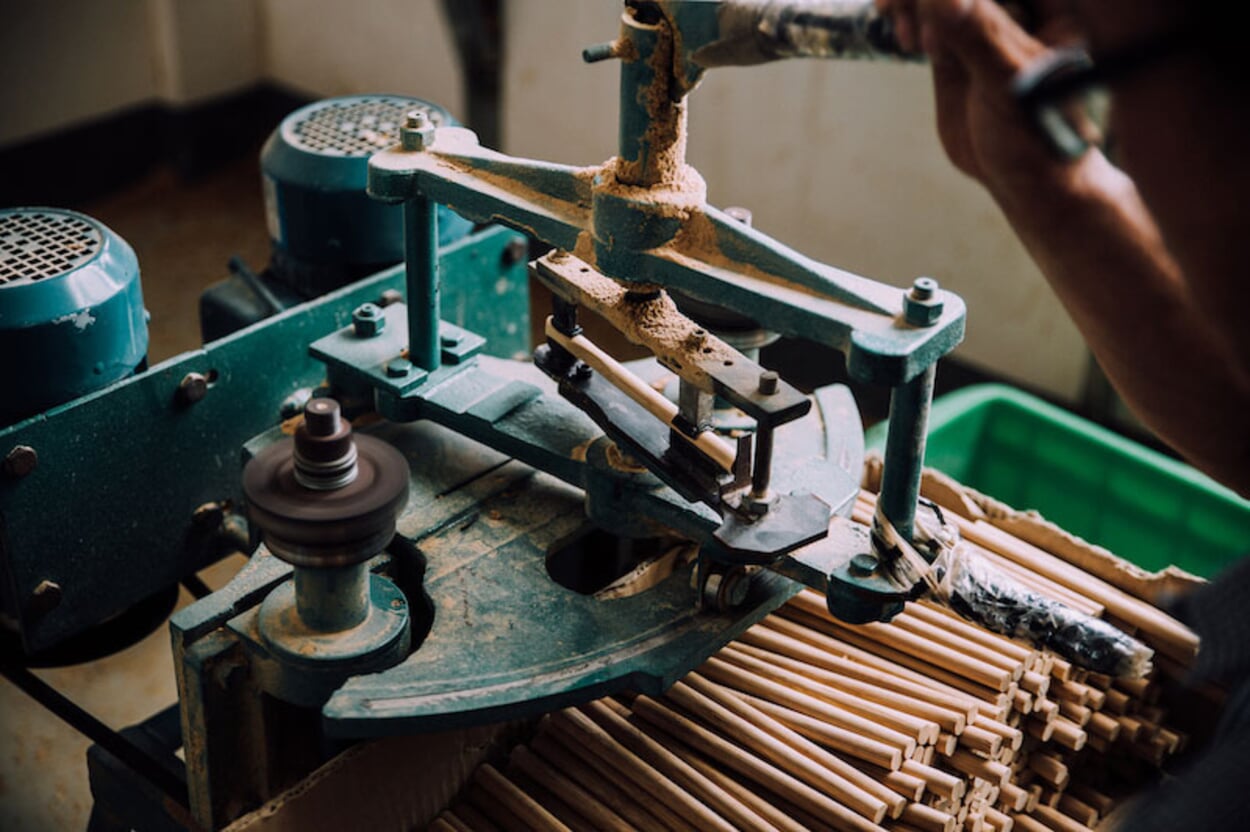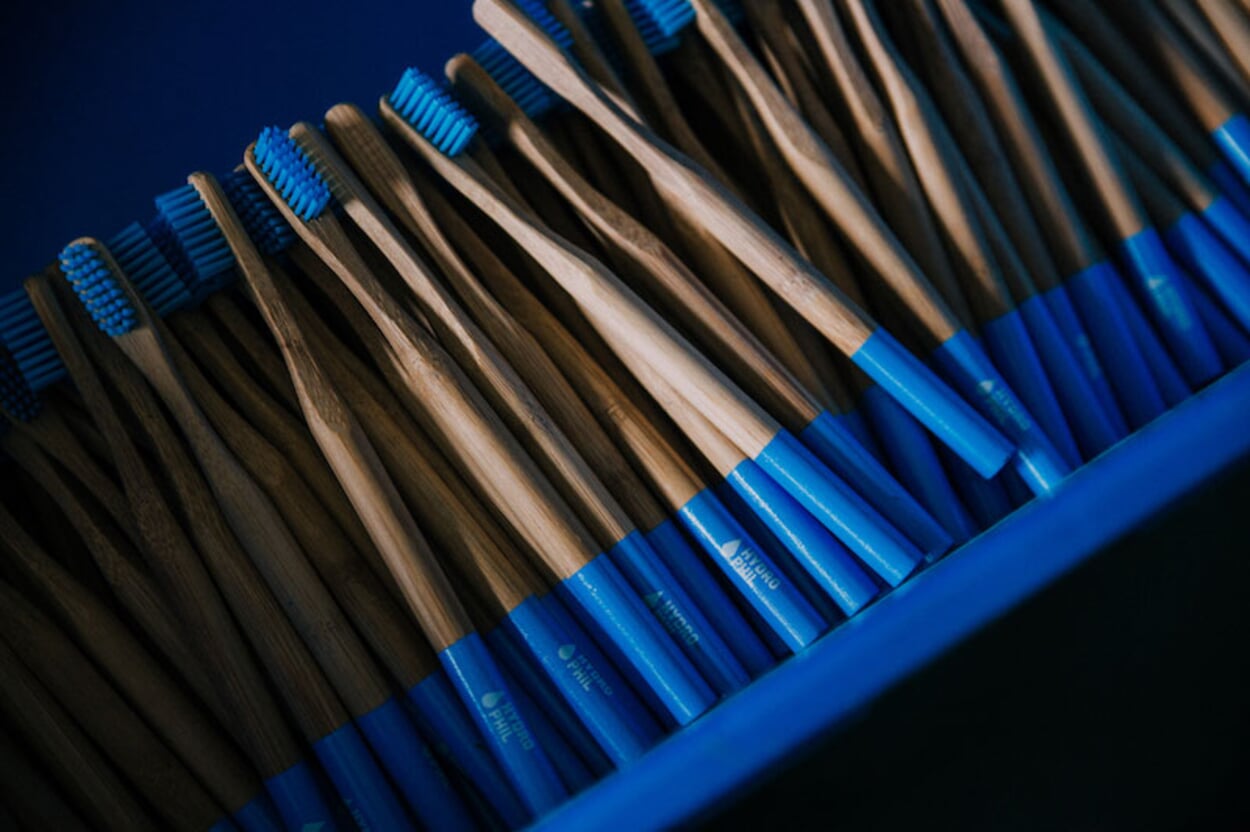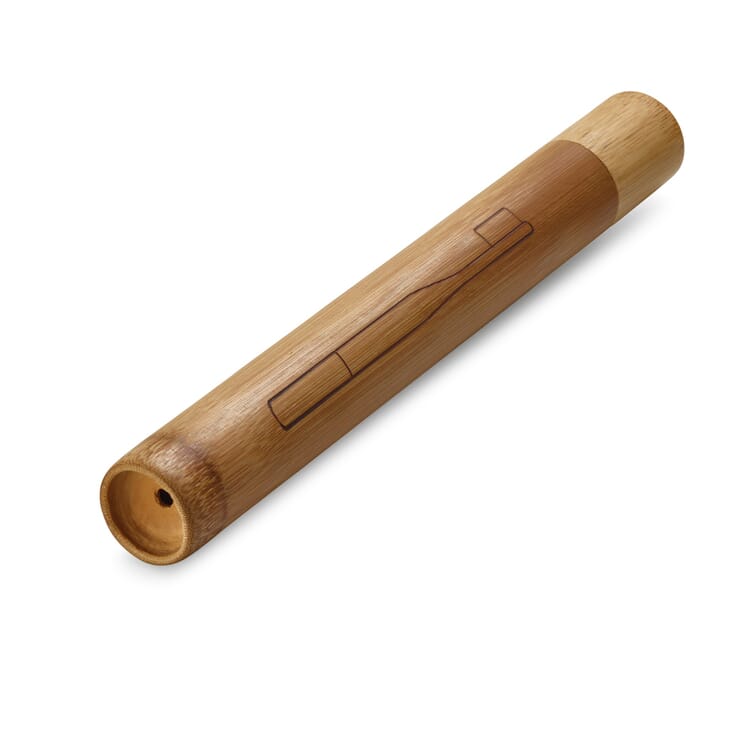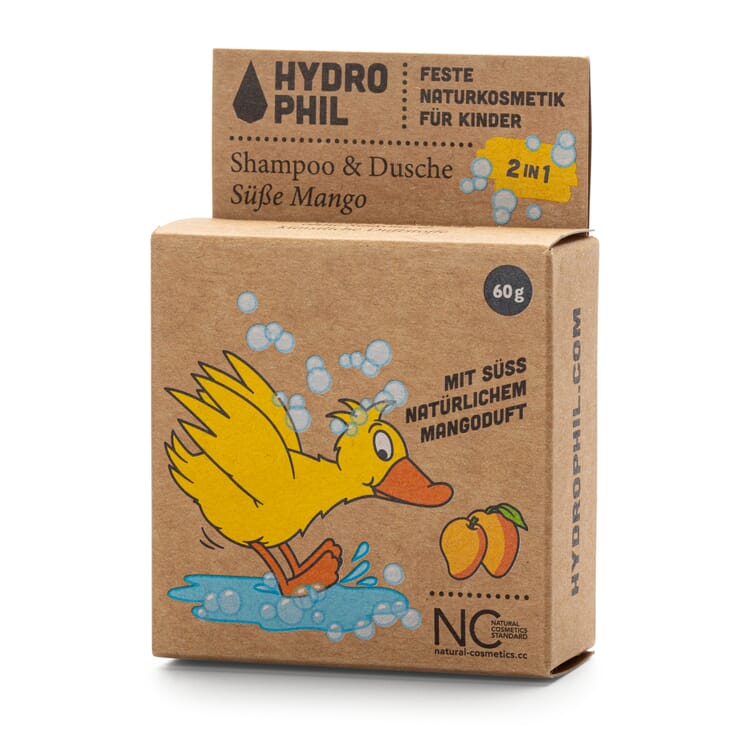Manufacturer
Hydrophil. For the love of water
The easiest place to save water is where it is used most often. And the bathroom, which accounts for more than a third of the drinking water used in Germany for bathing, showering and personal hygiene alone, is the undisputed leader in the statistics. If one looks not only at the actual consumption, but also at the amount of "virtual water" - a key figure that reveals how much water has been used in total for the manufacture of products - the absolute water consumption around the bathroom increases even more significantly. This is where the company Hydrophil comes in: The water-loving young entrepreneurs (Hydrophil from the ancient Greek hýdōr "water" and phílos "loving") are working to make the bathroom an all-around sustainable place. Their claim: to offer low-threshold product alternatives from the hygiene sector that are water-neutral, vegan and fairly produced.
Water neutral? What does that mean?
The company's own standard stands as a triad above the products of Hydrophil. Right at the front and emphasizing the high value for the company: "water-neutral," a word that cannot be found in the dictionary. "Yes, it's true, we invented the term," says Christoph Laudon, one of the founders of the young brand, "we see it as a counterpart to CO2-neutral." Of course, just like CO2-neutrality, it can only be an approximation, Laudon specifies. "We see the term more as a concept, as a production method that relies on natural raw materials that grow without artificial irrigation. Furthermore, for example, we only use paints that have no chemical additives and thus leave no trace in the groundwater when composted."
A family business among friends
The love of water is not only the business idea behind the joint company, it also brought the three founders Christoph Laudon, Wanja Johannes Weskott and Sebastian Bensmann together in the first place. The Hamburg-based team met at Viva con Agua, an association that campaigns for unrestricted access to clean drinking water worldwide. Their shared interest grew into a friendship, and when they debated Sebastian's latest blog post on "water consumption in textile production" on a bike ride one day, they came up with the idea: "We can do better." And they could: The first product, a self-printed T-shirt, was so well received that a fixed idea quickly turned into a thriving start-up.
Making everyday things better. The "sustainable bathroom" project
The T-shirts were just the starting signal. The idea quickly grew to specialize in hygiene and personal care products. "We're not reinventing the wheel, but replacing existing everyday products that no one has to change their daily routine for," Laudon explains. "We see them as door openers, multipliers that encourage engagement with and conversation about water."
Bamboo grows without artificial irrigation
Fair produced
The finished product
Fair products, fair work
One of the first products and also the most successful - the toothbrush made of bamboo - is a good example of the approach taken by Hydrophil. "We produce where it makes the most sense," explains Laudon. "It's much more exciting to start locally, where the source materials come from. In our case, development in terms of fair working conditions has already come a long way, whereas in other countries, especially also in China, where our toothbrushes are produced, you can really still make a difference." In order to do justice to fairness, the third pillar of their own work alongside water neutrality and vegan production, the Hydrophil makers rely on long-term cooperation when selecting their partners. Every year they visit the Chinese manufacturers, check the contracts and see the production conditions for themselves. Whenever possible, however, they also produce locally, as is the case with the toothbrush mugs, which are made from the biomaterial Arboblend®. And the concept is successful: jumping in at the deep end can sometimes pay off.

